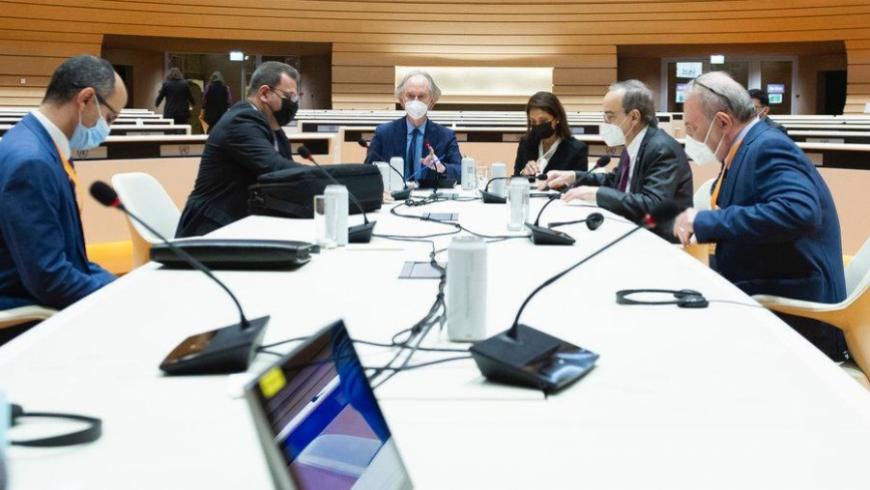Chances to reach solution on Syria interrupted by international domination, SCC member
RAQQA, Syria (North Press) – The international hegemony on paths of negotiations have interrupted opportunities of political solution to the crisis in Syria, a member of the Syrian Constitutional Committee (SCC) said on Saturday.
The SCC was founded in Sep 2019 by the UN Resolution 2254 designated with the political transition in Syria. The SCC comprises 150 members equally divided among the government, the opposition and the civil society.
The international political polarization of the parties participants in the negotiations have led to the failure of negotiation, Samira Mobayed, a member of the civil society delegation group of the SCC said.
Negotiations on Syria have come up with many documents and papers, but all achieved no real outcome or political accomplishment among the participant parties, according to Mobayed.
“Continuation of the international domination on the tracks of negotiations prolongs the suffering of the Syrians as well as prevents reaching a political solution in the near future,” she stated to North Press.
Every party submitted its own demands but all failed to reach a political vision through which a political solution is achieved in accordance with the international rules, including UN Resolution No. 2254, she pointed.
In late 2015, the Security Council unanimously adopts the UN Resolution 2254, endorsing a road map for peace process, aninstant ceasefire across Syria and political negotiations and elections within 18 months.
Reconciliations and barters
Mobayed thinks Astana Peace Talks have focused much attention on the military issue, gathering by that military leaders and countries that have intervened militarily in Syria and ended with adopting reconciliations and military bargaining among those parties.
Some negotiations of the Astana Peace Talks were far from aspirations of the Syrians due to the intervention of the participating countries militarily in those negotiations, Mobayed added.
The SCC work was marked by a kind of interruption over the past two years due to political polarization among actors to the conflict and failure to reach agreements among negotiators, Mobayed said.
Mobayed said negotiations tracks has been inactive so far. They have failed to introduce a road map or a political solution to the Syrian crisis or transition towards the aspirated change.
The subordinate of the opposition to regional parties and the subordination of the Syrian regime to regional and international parties have disowned the two parties form approaching political solution or meeting the demands of the Syria people, Mobayed said.
“International powers attempt to achieve their own strategic, military and economic interests on the Syrian land transcending interests of the Syrian people,” Mobayed said.
Start of negotiation tracks
The negotiation tracks to seek a political solution to the Syrian crisis started with Vienna Peace Talks on Syria in November 2015 with the participation of 20 international bodies and countries related to the Syrian issue.
The Vienna Peace Talks on Syria were followed by Geneva negotiations between the Syrian government and the Syrian opposition with the attendance of the International Special Envoy of the Secretary-General for Syria Mr. Staffan de Mistura.
On January 23, 2017, the first round of Astana Peace Talks kicked off in the Kazakh capital with the attendance of representatives of the Syrian government and the opposition under the auspices of the guarantor states (Russia, Turkey and Iran).
In general, Astana Peace Talks discusses mechanisms of delivering international humanitarian aids to Syria and the resumption of the SCC work without making any progress towards a political solution.
The SCC is an outcome of negotiations for finding a political solution for Syria’s crisis. The SCC held six rounds but achieved no outcomes in the political field and was disappointing, according to the current Special Envoy for Syria Mr. Pedersen.
The High Negotiations Committee (HNC) was founded on Dec 10, 2015 at a conference held in Riyad, Saudi Arabia with the aim to convene direct negotiations with the Syrian government under tracks supervised by the UN.
Members of the HNC participated in Geneva 3 and 4 meetings and in Astana Talks.
The HNC comprises 32 members, 9 from the National Coalition for Syrian Opposition Powers, 10 from armed opposition factions, 5 of the National Coordination Body, and 8 independent members.

